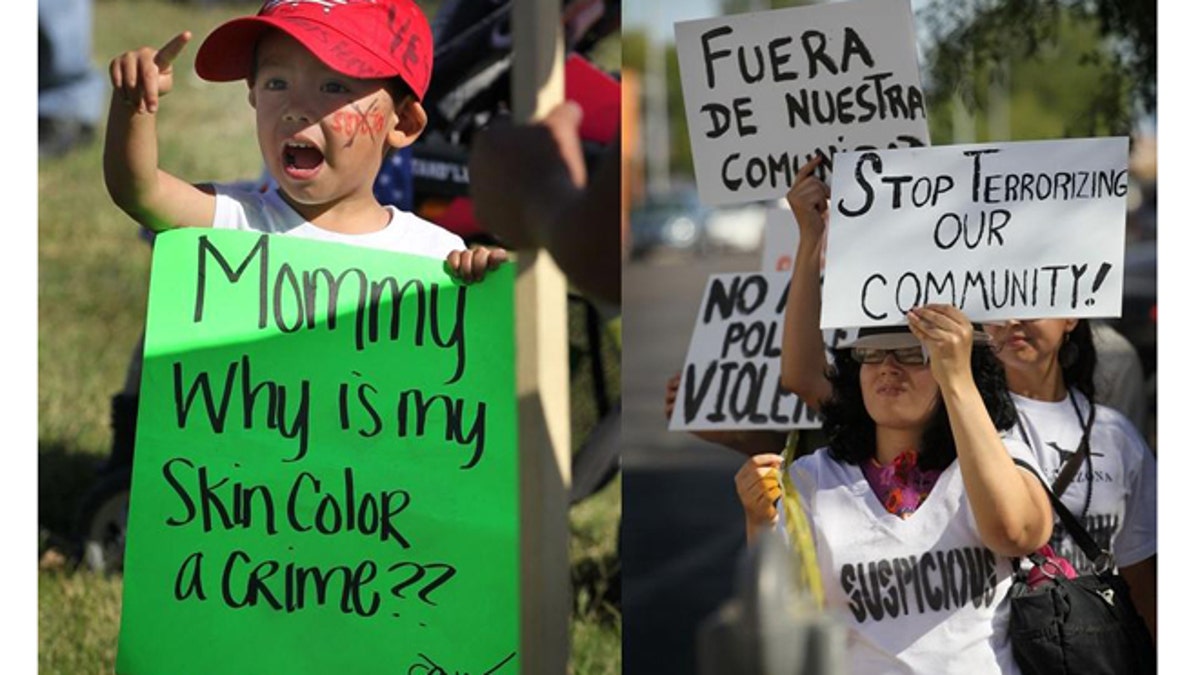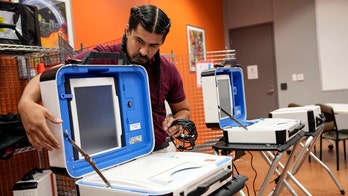
> on May 29, 2010 in Phoenix, Arizona. (2010 Getty Images)
The American Civil Liberties Union released a public service announcement to inform immigrants of their rights following the U.S. Supreme Court decision to uphold the controversial “show me your papers” provision.
Section 2(B) Decoded
Section 2(B) requires officers conducting a stop, detention, or arrest to make efforts, in some circumstances, to verify the person's immigration status with the federal government. A person cannot be randomly screened or asked to see immigration papers without having first committed some action that breaks the law.
Source: Arizona v. United States, No. 11-182 (June 25, 2012)
The PSA is intended to educate people on their rights during traffic stops and other encounters with the police. It was produced in both English and Spanish, featuring ACLU Immigrants Rights Project attorney, Andre Segura.
“The purpose of the PSA is to remind all individuals that everyone has basic constitutional rights and that the Supreme Court's decision did not change those rights,” Segura said in a statement to Fox News Latino. “This is not a protest against the Supreme Court's decision - it is meant only to educate the public about our constitutional rights.”
The provision, legally known as Section 2(B) of Arizona’s SB1070, allows police with “reasonable suspicion” to check the immigration status of a person stopped or detained.
“You have the right not to be profiled or discriminated against because of your race or your national origin,” Segura tells viewers. “If you are being questioned by police, then you have the right to ask whether you are free to leave. If the officer says yes, then you should do so and walk away quietly. If the officer says no, then you have the right to ask why.”
The ACLU and a coalition of legal groups have an ongoing lawsuit to stop the law in Friendly House v. Whiting. The coalition has already taken action against an immediate enforcement of the “show me your papers” provision by stating in a letter to defendants in Friendly House v. Whiting that the state cannot enforce the provision until an injunction against it is dissolved by a federal court.
NumbersUSA, a non-profit, non-partisan, and self-proclaimed “immigration-reduction” organization, has a different stance on the Supreme Court ruling. Roy Beck, head of the organization, does believe the provision will result in racial-profiling.
“We are opposed to racial profiling and prefer enforcement that makes racial profile difficult. The way it’s written, it bars racial profiling,” Beck told Fox News Latino. “The fact is when there is discretion given to a police officer, there’s always the possibly of racial profiling. If it should happen, then it should be stopped.”
You can reach Daniela Goncalves at Daniela.Goncalves@FoxNewsLatino.com
Follow us on twitter.com/foxnewslatino
Like us at facebook.com/foxnewslatino












































